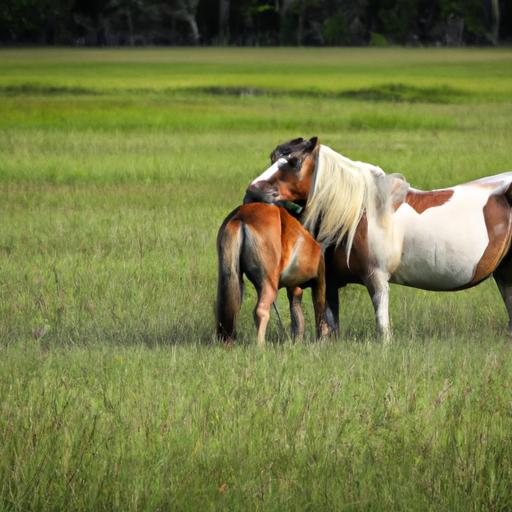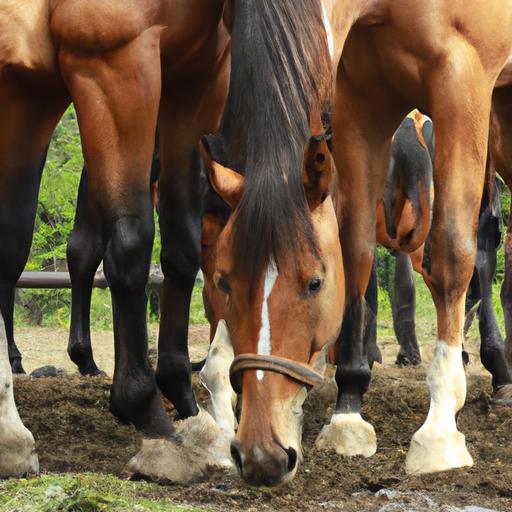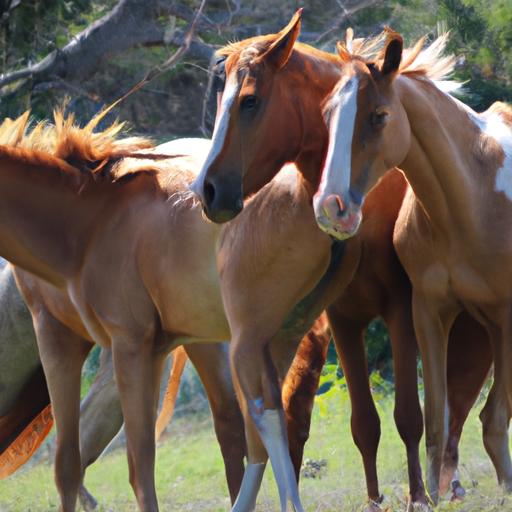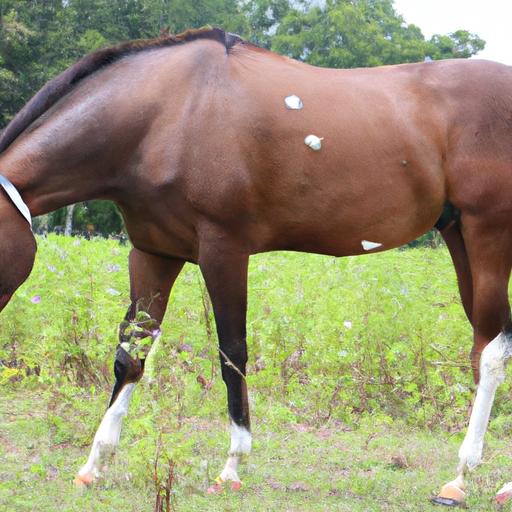Understanding and addressing marish horse behavior is crucial for horse owners. Learn the causes, manifestations, and effective management strategies in this comprehensive guide.
Horses, majestic creatures that they are, can sometimes exhibit unique behaviors that can be puzzling to horse owners and handlers. One such behavior is known as “marish horse behavior,” which refers to specific behavioral patterns exhibited by mares. In this article, we will explore the concept of marish horse behavior, its significance, and how to effectively address and manage it.
Why is it important to understand and address marish horse behavior?
As horse enthusiasts, it is crucial to have a comprehensive understanding of marish horse behavior to ensure the well-being and safety of both the horses and the handlers. Mares, due to their reproductive cycles and hormonal fluctuations, may display certain behaviors that can impact their responsiveness, mood, and overall behavior. By recognizing and addressing marish horse behavior, we can create a harmonious bond with our equine companions and enhance their training and overall quality of life.
Overview of this article
In this article, we will delve into the intricacies of marish horse behavior, exploring its causes, manifestations, and effective management strategies. We will start by defining marish horse behavior, highlighting its characteristic signs and manifestations. Understanding the underlying causes, such as hormonal changes and genetic predispositions, will be crucial in comprehending the root of this behavior.
Next, we will explore various techniques and approaches to manage marish horse behavior effectively. From proper handling and training methods to environmental adaptations, we will provide practical insights to mitigate the challenges associated with marish behavior. We will emphasize the significance of utilizing positive reinforcement and reward-based training techniques to foster a positive and cooperative relationship with mares.
Addressing specific behavioral issues related to marish behavior will be the focal point of this article as well. From dealing with aggression and mood swings to seeking professional help when needed, we will offer valuable tips and guidance to overcome these challenges.
In conclusion, understanding marish horse behavior is essential for every horse owner and handler. By gaining insights into the causes, manifestations, and effective management strategies, we can create a harmonious and fulfilling partnership with our mares. So, let’s embark on this journey together and unravel the secrets of marish horse behavior to ensure the well-being and happiness of our equine companions.
Understanding Marish Horse Behavior

Definition and Characteristics of Marish Horse Behavior
Marish horse behavior refers to specific behavioral patterns exhibited by mares, which can be attributed to their reproductive cycles and hormonal changes. Mares may display varying degrees of marish behavior, including mood swings, irritability, and sensitivity. Understanding the defining characteristics of marish behavior is crucial to effectively manage and address these challenges.
Common Signs and Manifestations of Marish Behavior in Mares
When it comes to marish behavior, mares can exhibit a range of signs and manifestations. Some common signs include:
1. Mood Swings and Irritability
Mares may experience sudden shifts in mood, displaying irritability, restlessness, and increased sensitivity to touch or pressure. These mood swings can sometimes lead to challenging behaviors, making it important to be aware of these signs and respond appropriately.
2. Aggression and Dominance
Certain mares may become more aggressive or dominant during their reproductive cycles. They may display behaviors like biting, kicking, or pinning their ears back as a means of asserting their dominance or protecting their territory.
3. Estrus-related Behaviors
During the estrus or “heat” phase of their reproductive cycle, mares may exhibit behaviors such as frequent urination, vocalization, and increased flirtatiousness towards stallions or other horses. These behaviors are part of their natural reproductive instincts.
Factors Influencing Marish Behavior
Marish behavior in mares is primarily influenced by hormonal changes and reproductive cycles. Fluctuations in estrogen and progesterone levels can significantly impact their behavior. Other factors that may contribute to marish behavior include genetics and breed predispositions. It is important to recognize that not all mares will exhibit the same degree of marish behavior, as individual differences can also play a role.
By understanding the definition, characteristics, and common signs of marish horse behavior, we can better navigate the challenges that may arise when working with mares. In the next section, we will explore the underlying causes of marish behavior and delve deeper into the factors that contribute to this unique behavior.
Causes of Marish Horse Behavior

Marish horse behavior is influenced by various biological, physiological, and genetic factors. Understanding these causes is crucial to effectively address and manage the unique behaviors exhibited by mares. Let’s explore these factors in more detail:
Biological and Physiological Factors
Biological and physiological factors play a significant role in marish horse behavior. Mares undergo regular reproductive cycles, which involve changes in hormone levels that can impact their behavior. These cycles typically occur every 21 days and are influenced by the mare’s environment, age, and health. During estrus (heat), mares may exhibit heightened sensitivity, restlessness, and increased vocalization.
Impact of Hormones on Mares’ Behavior
Hormones, particularly estrogen and progesterone, have a profound impact on mares’ behavior. Estrogen, produced during estrus, can lead to increased aggression, restlessness, and irritability. Progesterone, on the other hand, is produced during pregnancy or the luteal phase of the reproductive cycle and can contribute to more stable and calm behavior.
During transitional phases, when mares are moving between reproductive cycles, hormone fluctuations can result in unpredictable behavior. It is important to note that individual mares may respond differently to these hormonal changes, and their behavior can vary.
Role of Genetics and Breed Predispositions
Genetics and breed predispositions also contribute to marish horse behavior. Certain breeds, such as Arabian or Thoroughbred, may have a higher likelihood of displaying marish behavior due to their genetic makeup. These breeds often have a more pronounced sensitivity to hormonal changes, leading to more pronounced behavior patterns.
Additionally, individual temperament and personality traits can further influence marish behavior. Some mares may naturally possess a more dominant or reactive disposition, which can contribute to the intensity of their marish behavior.
Understanding the biological, physiological, and genetic factors contributing to marish horse behavior provides valuable insights into why mares exhibit certain behaviors. By recognizing and considering these causes, we can develop effective strategies to manage and address marish behavior, ensuring a harmonious partnership with our equine companions.
Managing Marish Horse Behavior

Mares may exhibit marish behavior due to hormonal fluctuations and reproductive cycles. Managing marish horse behavior is crucial to maintain a cooperative and harmonious relationship with these magnificent creatures. Let’s explore some effective strategies and approaches for effectively managing marish behavior in mares.
Importance of Proper Handling and Training Techniques for Mares
Proper handling and training techniques play a significant role in managing marish behavior in mares. Consistency, patience, and clear communication are key components of successful horse training. When working with a marish mare, it is essential to establish trust and respect through gentle and respectful handling.
Creating a calm and structured environment: Mares can be sensitive to their surroundings, so it is important to provide a calm and structured environment that minimizes stress. Ensure that their living space is clean, well-maintained, and free from any potential sources of anxiety.
Establishing a routine: Mares thrive on routine, so establishing a consistent schedule for feeding, turnout, and training sessions can help reduce anxiety and promote a sense of security. Regular exercise and mental stimulation are also crucial for their overall well-being.
Strategies for Mitigating Marish Behavior, Including Environmental Adaptations
Making environmental adaptations can greatly assist in mitigating marish behavior in mares. Here are some strategies to consider:
Stable companionship: Mares are social animals, and providing them with compatible stable companions can alleviate feelings of loneliness and reduce stress levels. A calm and balanced companion can have a positive influence on a marish mare’s behavior.
Controlled turnout: Offering ample turnout time in a safe and controlled environment can help mares release energy and reduce frustration. Providing access to grazing and natural foraging opportunities can also contribute to their overall contentment.
Utilizing Positive Reinforcement and Reward-Based Training Methods
Positive reinforcement and reward-based training techniques are highly effective in managing marish behavior in mares. By rewarding desired behaviors, we can encourage mares to exhibit cooperative and positive responses. Here are some tips for utilizing these training methods:
Clicker training: Clicker training is a popular positive reinforcement technique that uses a distinct sound, such as a clicker, to mark desired behaviors. By pairing the sound with rewards, mares quickly learn to associate the click with positive outcomes and actively engage in the training process.
Consistent praise and rewards: Verbal praise, gentle strokes, and treats can serve as powerful motivators for mares. By consistently rewarding desired behaviors, we reinforce their understanding of what is expected and encourage them to replicate those behaviors.
In conclusion, managing marish horse behavior requires a combination of proper handling, environmental adaptations, and positive reinforcement training techniques. By creating a calm and structured environment, implementing strategies to mitigate marish behavior, and utilizing positive reinforcement, we can foster a cooperative and harmonious relationship with our mares. Remember, patience, understanding, and a gentle approach are key when working with these magnificent creatures.
Addressing Marish Horse Behavior Issues
Marish horse behavior can present unique challenges that require careful attention and proactive measures. In this section, we will explore ways to identify and address specific behavioral problems associated with marish behavior. We’ll also provide valuable tips for dealing with aggression, mood swings, and other challenges that may arise. Additionally, we’ll discuss the importance of seeking professional help from equine behaviorists or veterinarians when necessary.
Identifying and Addressing Behavioral Problems
Identifying specific behavioral problems related to marish behavior is crucial for effective management. Mares may exhibit various issues, such as aggression, resistance, or difficulty focusing, which can significantly impact their training and overall behavior. It is essential to observe and recognize these problems to address them promptly.
To identify behavioral problems, closely monitor your mare’s interactions, both during training sessions and in daily activities. Look for signs of aggression towards other horses or handlers, excessive spookiness, refusal to perform certain tasks, or inconsistent responses to cues. Keeping a detailed record of these observations will help you identify patterns and triggers associated with specific behavioral issues.
Once you’ve identified the behavioral problems, it’s time to take appropriate action. Tailor your training approach to address the specific challenges your mare is facing. This may involve breaking down tasks into smaller, manageable steps, providing clear and consistent cues, and rewarding desired behaviors. Patience, consistency, and a calm demeanor are key when working with mares exhibiting marish behavior.
Tips for Dealing with Aggression, Mood Swings, and Other Challenges
Aggression and mood swings are common issues associated with marish horse behavior. To address aggression, establish clear boundaries and reinforce respectful behavior. Implementing positive reinforcement techniques, such as rewarding calm and cooperative behavior, can help redirect aggression and encourage more desirable responses.
Mood swings can be challenging to manage but can often be influenced by hormonal fluctuations. Pay attention to your mare’s reproductive cycle and adapt your training and handling approaches accordingly. Providing a consistent and stable environment, ensuring regular exercise, and maintaining a balanced diet can also help stabilize mood swings.
In addition to aggression and mood swings, other challenges may arise, such as difficulty with transitions or resistance to certain exercises. In such cases, consider seeking professional help from equine behaviorists or veterinarians who specialize in mare behavior. These experts can offer valuable insights, develop tailored training plans, and provide guidance on managing marish behavior effectively.
Seeking Professional Help and Consulting Experts
If you find yourself facing persistent or severe behavioral issues with your mare, seeking professional help is crucial. Equine behaviorists and veterinarians with expertise in mare behavior can provide invaluable guidance and support. They can conduct a thorough assessment, identify underlying factors contributing to marish behavior, and develop a customized plan to address the specific challenges you’re facing.
Remember, every horse is unique, and what works for one may not work for another. By consulting experts in the field, you can gain a deeper understanding of your mare’s behavior and implement targeted strategies that yield positive results. Investing in professional help demonstrates your commitment to your mare’s well-being and sets the foundation for a healthier and more harmonious partnership.
In the next section, we will conclude our exploration of marish horse behavior, summarizing the key points discussed throughout this article.


